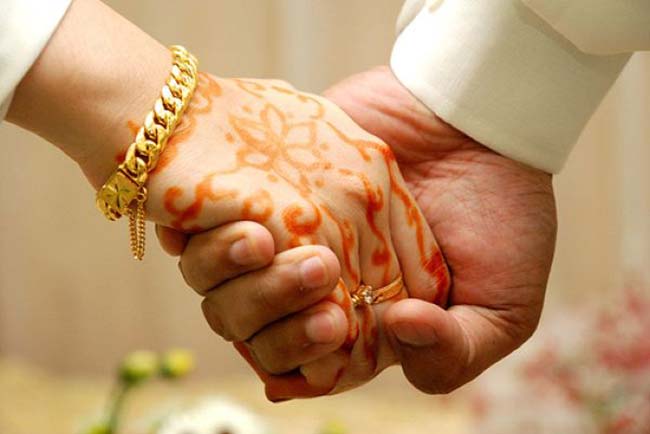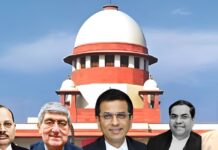At a seminar in Srinagar, various victims from Kunan spoke publicly of their ordeal and threw questions to the society, reports Bilal Handoo

“Our children are now asking us, were you subjected to assault,” lamented Mala (name changed), one of the 40 women who was allegedly gang-raped by 4 Rajputana Rifles army in the intervening night of Feb 22-23, 1991 at Kunan Poshpora village of north Kashmir’s Kupwara district.
22 yrs and 4 months after the incident, Mala and other rape victims of Kunan Poshpora were speaking for the first time on Saturday in a public meeting in Srinagar organized by coalition of civil society (CCS) of Kashmir. “We have come from Kunan Poshpora to seek justice,” she said. “Everybody has failed us in all these years.”
Mala recounts that in the fateful night at approximately 11:00 pm soldiers from the 4 Rajputana Rifles cordoned off the village to conduct a search operation. “The soldiers raped a large number of village women overnight till 9:00 am the next day,” she said in a sobbing tone.
“Five among the raped women are already dead.”
While the rape victims were sitting among the audience, their relatives were narrating the ordeal of highly covered rape incident at national and international levels on the stage.
“We reported the rapes to army officials on February 27, but the officials denied the charges and refused to take any further action,” Ali Mohammad, the relative of one of the rape victims said. “However, army officials claim that no report was ever made.”
Relatives of rape victims alleged that up to 100 women were “gang-raped” without any consideration of their “age, married, unmarried, pregnancy etc”.
“The victims were ranged in age from 13 to 80,” they told audience.
Reopened
The case which is about 23 years old got a fresh lease of life on Tuesday when a local court in Kupwara ordered the police to further investigate the mass rape case.
Earlier the victims of the incident had filed a protest petition in the court against the police closure report in the case.
“Despite having information on file regarding the involvement of 125 personnel of 4 Rajputana Rifles, the police had not questioned them and neither was an identification parade conducted,” the petition reads.
Investigations
On March 5, 1991 villagers complained to Kupwara district magistrate SM Yasin about the incident. Yasin visited the village on March 7 to investigate the matter. In his final report, he stated that the soldiers “behaved like wild beasts.”
“We were brutally robbed of our honour and dignity,” says Rukaya (name changed), another rape victim of 1991 mass-rape.
Following the district magistrate’s report, increased publicity about the incident led to strong denials from Indian military officials. On March 17, Mufti Baha-ud-Din Farooqi, Chief Justice of the High Court of Jammu and Kashmir, led a fact-finding mission to Kunan Poshpora.
“Over the course of his investigation, he interviewed fifty-three women who claimed to have been raped by the soldiers, and tried to determine why a police investigation into the incident had never taken place,” Khuram Parvaiz, convener CCS said on the occasion.
According to Farooqi’s report, villagers claimed that a police investigation into the event had never commenced because the officer assigned to the case, Assistant Superintendent Dilbaugh Singh, was on leave.
Farooqi later stated that in his 43 years on the bench he “had never seen a case in which normal investigative procedures were ignored as they were in this one.”
Just a few months later, in July, 1991, Dilbaugh Singh was transferred to another station without ever having started the investigation.
On March 18, 1991 divisional commissioner (Kashmir) Wajahat Habibullah visited the village, and filed a confidential report, parts of which were later released to the public. “While the veracity of the complaint is highly doubtful, it still needs to be determined why such complaint was made at all… I found many of the village women genuinely angry… It is recommended that the level of investigation be upgraded to that of a gazetted police officer,” his report concluded.
In response to criticism of the government’s handling of the investigation, the army requested the Press Council of India to investigate the incident.
The investigative team visited Kunan Poshpora in June that year, more than three months after the alleged attacks. Upon interviewing a number of the alleged victims, the team claimed that contradictions in their testimony rendered their allegations of rape “baseless.”
The team interviewed hospital officials who stated that one of the women who had been pregnant at the time of the incident had given birth to a child with a fractured arm just 4 days afterwards. She claimed that she had been kicked during the rape. In fact, a pediatrician who visited the village as part of the Jammu and Kashmir People’s Basic Rights Committee confirmed her story.
But the Press Council team led by B G Verghese claimed that the fetus had been injured during delivery. Medical examinations conducted on 32 of the women between March 15 and 21, nearly one month after the incident, confirmed that the women had wounds on their chests and abdomens, and that the hymens of three of the unmarried women had been torn.
The team claimed that “such a delayed medical examination proves nothing” and that the medical findings were typical among villagers. Ultimately, the team concluded that the charges against the army were, “well-concocted bundle of fabricated lies”.
In stark contrast of the purported allegations of abuses, these investigations concluded the allegations themselves are “grossly exaggerated or invented”.
Criticism
The Press Council’s dismissal of the entire Kunan Poshpora allegation and the manner in which it carried out its investigation were widely criticized.
“The committee’s eagerness to dismiss any evidence that might contradict the government’s version of events is deeply disturbing,” Human Rights Watch noted. “The committee has revealed itself to be far more concerned about countering domestic and international criticism than about uncovering the truth.”
Asia Watch, in its 1991 report, stated: “The Press Council investigation fall far short of the measures necessary to establish the facts in the incident and determine culpability.”
The United States Department of State, in its 1992 report on international human rights, rejected the Indian government’s conclusion, and determined that there was “was credible evidence to support charges that an elite army unit engaged in mass rape in the Kashmiri village of Kunan-Poshpora.”
So far…
Following the release of the Press Council’s report, Indian authorities dismissed all of the allegations of mass rape as groundless.
No further investigations were conducted.
However, in October 2011, the State Human Rights Commission asked the government to reinvestigate the mass rape case and compensate the victims. They also called for proceedings to be taken against the then Director of Prosecutions who had sought closure of the mass rape case and not investigation.
Meanwhile, social stigma due to this incident has resulted in women of this area facing difficulties in getting married even today.
“We stopped to visit nearby forest to get timber, as people used to look down upon us,” said Mala, which left everybody in tears in a meeting.
“Please support us to seek justice.”
















culprits should be prosecuted
Kudos to the civil society activists and to the media who always(time to time) highlighted the issue so that men in uniform are brought to justice
Army men should be hanging. In Kashmir justice is only in papers. We should speak in on voice and teach the lession to india.